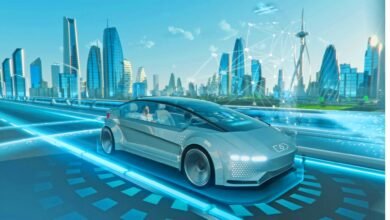Driving Innovation: Exploring Germany’s Automotive Industry

In the ever-evolving landscape of the automotive world, Germany’s prowess in innovation takes center stage. Renowned for its engineering excellence and groundbreaking contributions, the German automotive industry stands as a beacon of cutting-edge technology. As we delve into the dynamic realm of “Driving Innovation: Exploring Germany’s Automotive Industry,” we unravel a narrative that goes beyond the assembly lines and into the very heart of a nation that has consistently steered the course of automotive advancement.
From historic milestones to sustainable technologies, this exploration aims to showcase how Germany continues to redefine the automotive sector, setting global standards and pushing the boundaries of what is possible. In this journey, we’ll witness the fusion of tradition and modernity, illustrating why Germany is not just a hub for automobiles but a cradle of innovation that propels the entire industry forward.
Historical Evolution of German Automotive Industry
The roots of Germany’s automotive excellence trace back to the early 20th century. Landmark achievements and breakthroughs have shaped the industry, with the impacts of World Wars serving as both challenges and catalysts for advancement.
German Engineering Excellence
The hallmark of German automobiles is precision and quality. The country has set and maintained high standards, contributing significantly to the establishment of global benchmarks in automotive manufacturing.
Innovation in Sustainable Technologies
Germany’s commitment to sustainability is reflected in its automotive industry. Embracing electric vehicles and exploring alternative fuels, German automakers are at the forefront of eco-friendly transportation solutions.
Digital Transformation in Manufacturing
Industry 4.0 technologies have revolutionized manufacturing processes. Smart factories, automation, and interconnected systems characterize the digital transformation that has bolstered efficiency and innovation in the German automotive sector.
Collaborations and Partnerships
German automakers understand the power of collaboration. Working together within the industry and forming international partnerships has fueled collective innovation and global competitiveness.
Challenges Faced by the Industry
Despite its dominance, the German automotive industry faces challenges such as global competition and evolving regulatory standards, prompting continuous adaptation and innovation.
Case Studies: Successful Innovations
Examining specific instances of innovation from German automakers provides insights into their impact on the global automotive market, showcasing the industry’s ability to pioneer change.
Consumer Trends and Preferences
Germany’s Automotive Industry: Understanding and responding to consumer demands is a driving force behind innovation in Germany’s automotive sector. The focus on customization and personalization has redefined the industry’s approach to design and functionality.
Government Initiatives and Policies
Germany’s Automotive Industry: Supportive government policies and incentives have played a crucial role in fostering a culture of research and development, further propelling innovation in the German automotive industry.
The Role of Startups in Driving Innovation
Germany’s Automotive Industry: A surge in startups within the German automotive scene has brought fresh perspectives and disruptive ideas, with incubators and accelerators providing fertile ground for innovation.
Future Prospects and Emerging Technologies
Germany’s Automotive Industry: Predicting the future of the German automotive industry involves envisioning advancements in autonomous driving and the integration of artificial intelligence, ensuring the sector remains at the forefront of technological innovation.
Social and Environmental Responsibility
Impact of COVID-19 on Innovation
The COVID-19 pandemic presented challenges for the automotive industry. However, the adaptability and resilience demonstrated by German automakers have led to valuable lessons and accelerated digital transformation.
Read More: Navigating the German Healthcare System: A Comprehensive Overview
Conclusion
In the grand tapestry of automotive excellence, the exploration of Germany’s automotive industry reveals not just a chronicle of achievements but a roadmap for the future. As we conclude this journey through innovation, it becomes evident that Germany is not merely a player in the automotive industry; it is an orchestrator of technological progress. The resilience displayed, particularly in the face of challenges like the COVID-19 pandemic, showcases the adaptability of German automakers.
The commitment to sustainability, with a focus on electric vehicles and alternative fuels, positions Germany at the forefront of eco-friendly transportation solutions. The integration of Industry 4.0 technologies and the emphasis on digital transformation in manufacturing underline a dedication to efficiency and precision that has become synonymous with German engineering. As we look to the horizon of the automotive industry, Germany’s influence on innovation remains unwavering, ensuring that the nation continues to drive not only automobiles but the entire global automotive narrative into a future marked by progress and unparalleled advancements.
FAQs
How has Germany’s automotive industry adapted to changing consumer preferences?
German automakers actively incorporate consumer preferences into their design and innovation processes, ensuring their products align with evolving market demands.
What role do startups play in shaping the future of the German automotive industry?
Startups contribute fresh perspectives and disruptive ideas, fostering innovation within the industry. Incubators and accelerators provide a platform for these startups to thrive.
How has COVID-19 impacted the innovation trajectory of the German automotive sector?
The pandemic prompted adaptability and resilience within the industry, accelerating digital transformation and emphasizing the importance of preparedness for unforeseen challenges.
What are some notable sustainable technologies embraced by German automakers?
German automakers lead in embracing electric vehicles and alternative fuels, showcasing a commitment to environmentally friendly transportation solutions.
How does the German government support innovation in the automotive industry?
Supportive policies and incentives for research and development contribute to fostering a culture of innovation within the German automotive sector.











